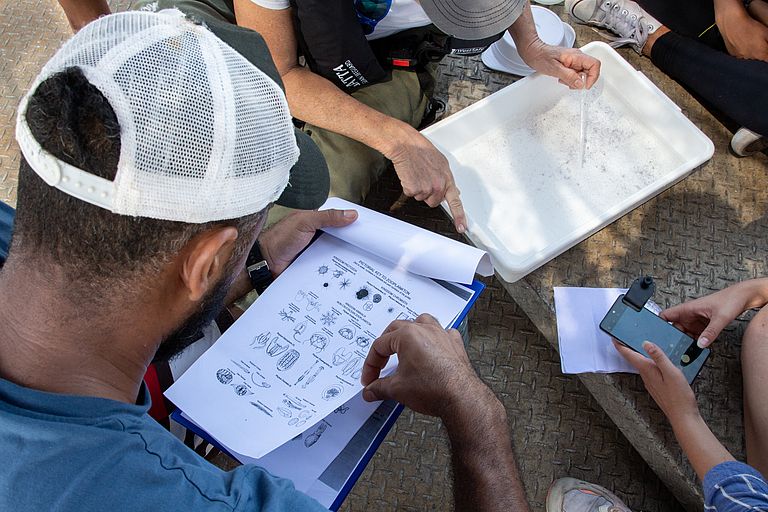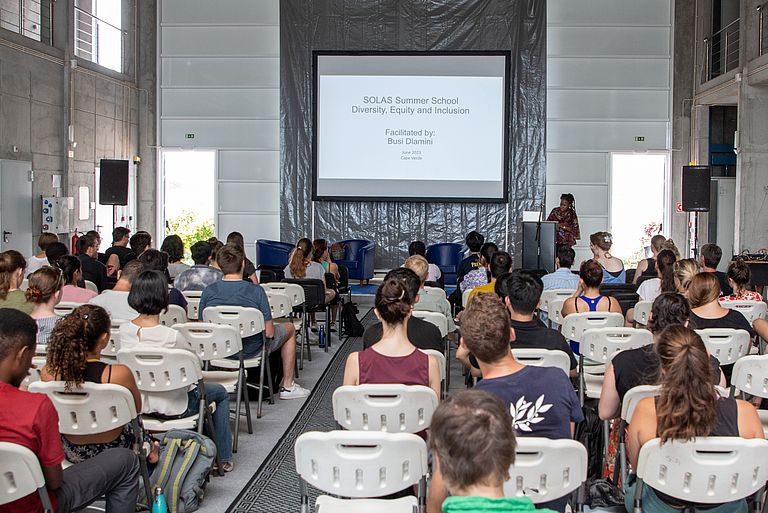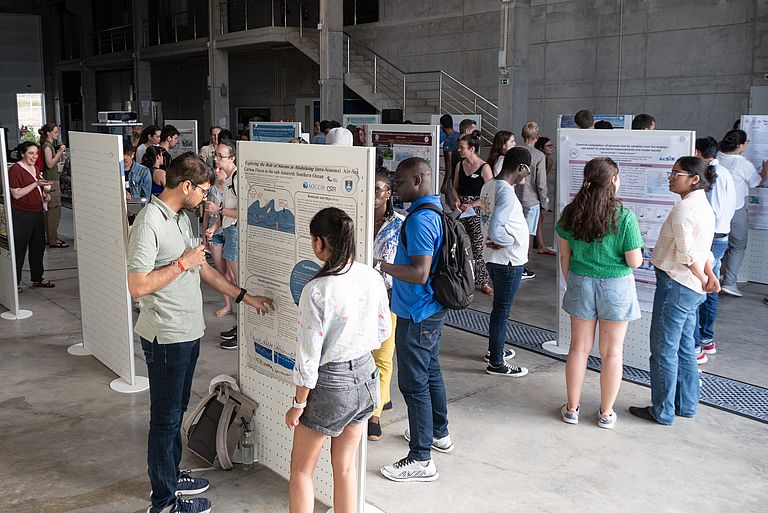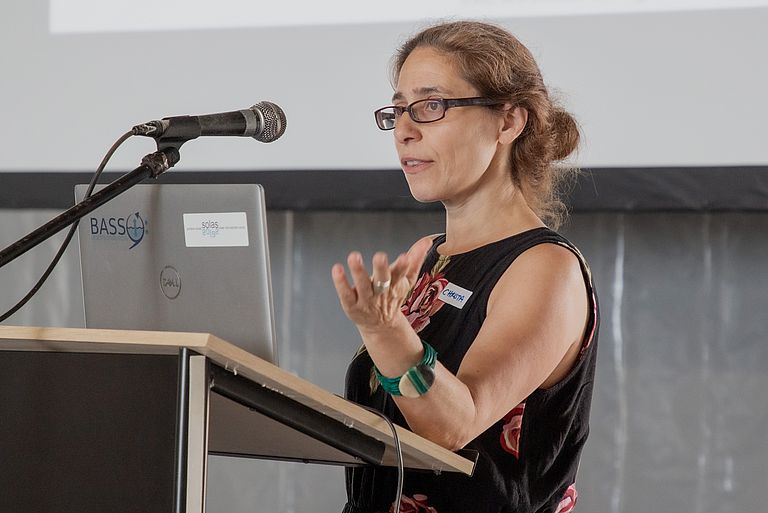SOLAS Summer School with focus on Africa
66 young researchers expanded their knowledge on ocean-atmosphere interactions
66 students and 30 lecturers, practical demonstrators, and organisers gathered recently at the Ocean Science Center Mindelo (OSCM) on the island of São Vicente, Cabo Verde, for the 9th Summer School of the project Surface Ocean – Lower Atmosphere Study (SOLAS). The summer school is a well-established activity of the international project. This year’s edition was coordinated by Dr. Christa Marandino, marine chemist at GEOMAR Helmholtz-Centre for Ocean Research Kiel. SOLAS explores interactions between air and sea, investigates physical, chemical and biological processes in the upper ocean and in the lower atmosphere and connects researchers from these disciplines worldwide. The participants – master and doctoral students as well as recent postdocs – came from 25 countries and various fields of oceanography and atmospheric science. The lecturers were experts on SOLAS science from around the world. For the first time, the summer school was held in an African country.
“It is clear that globally relevant science needs global participation. SOLAS recognizes the importance of broadening participation in our research topics, which means targeting regions that have so far been underrepresented in the SOLAS network”, says Dr. Marandino. “Early career scientists in many African nations are performing or would like to perform pertinent research on SOLAS topics, so SOLAS needs a presence within their communities. Cabo Verde, and specifically the Ocean Science Centre Mindelo, provide a wonderful stepping stone into these communities.” The courses were supported by the on-site team of the OSCM as well as past summer school alumni and the SOLAS International Project Offices in Ireland and China.
The summer school included lectures on the fundamentals of ocean and atmosphere sciences, such as atmospheric physics and chemistry, global carbon cycling, remote sensing and modelling, as well as more specialised topics like, upwelling, marine aerosols, polar oceans, climate intervention as well as science and society interactions, diversity and ethics in SOLAS research. Poster sessions allowed the students to share their research and network with their peers and the lecturers. Practical sessions focused on specific aspects of SOLAS science, such as air-sea exchange, experiments on the sea-surface microlayer, modelling, remote sensing, and science communication.
In addition, the programme included a series of half-day cruises on-board the Cape Verdean vessel “Almadraba” in the waters of the Baia de São Pedro, about 10 kilometres southwest of Mindelo, and a visit to the Cape Verde Atmospheric Observatory (CVAO), a scientific research facility that is part of the Global Atmospheric Watch network from the World Meteorological Organisation. Furthermore, the students enhanced their communication skills via short presentations of their research and team reports on one of their practical sessions.
“Altogether, these were two intense, joyful and exciting weeks for everyone involved”, says Dr. Marandino. “The summer school is an energising and fun time to meet with many talented and determined students from different backgrounds and parts of the world.”
Background Surface Ocean - Lower Atmosphere Study (SOLAS)
The global and multidisciplinary research project Surface Ocean - Lower Atmosphere Study (SOLAS) was established to provide international science coordination and capacity building. Initiated with a first Open Science Conference in 2000 and formally launched in 2004, SOLAS research aims to understand the key biogeochemical-physical interactions and feedbacks between the ocean and atmosphere. Achievement of this goal is important to understand and quantify the role that ocean-atmosphere interactions play in the regulation of climate and global change.

The practical training also included species indentification exercises using water samples. Photo: Edson Silva Delgado, GEOMAR

The SOLAS Summer School 2023 included lectures on the fundamentals of ocean and atmosphere sciences as well as more specialised topics. Photo: Edson Silva Delgado, GEOMAR

In poster sessions, the participants shared their research with their peers and lecturers. Photo: Edson Silva Delgado, GEOMAR

Dr. Christa Marandino, marine chemist at GEOMAR Helmholtz-Centre for Ocean Research Kiel, coordinated this year’s SOLAS Summer School. Photo: Edson Silva Delgado, GEOMAR


